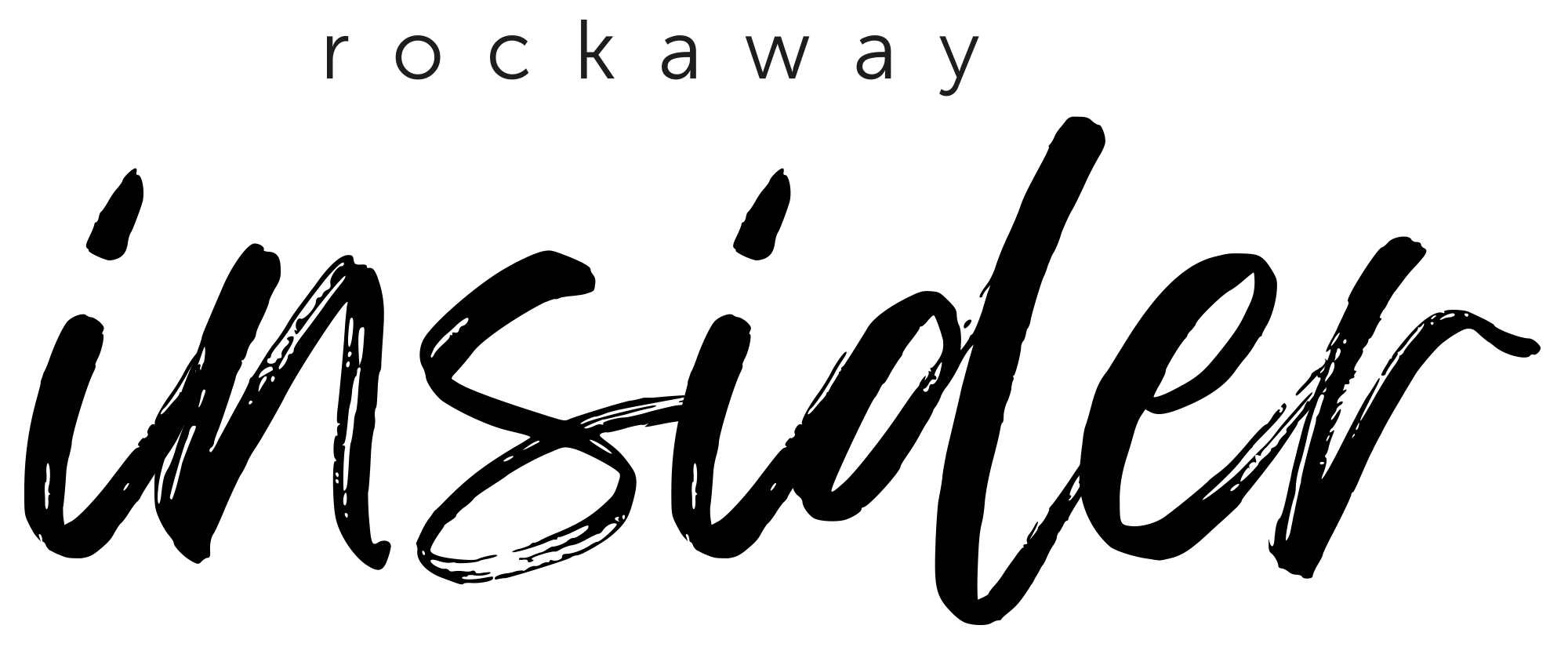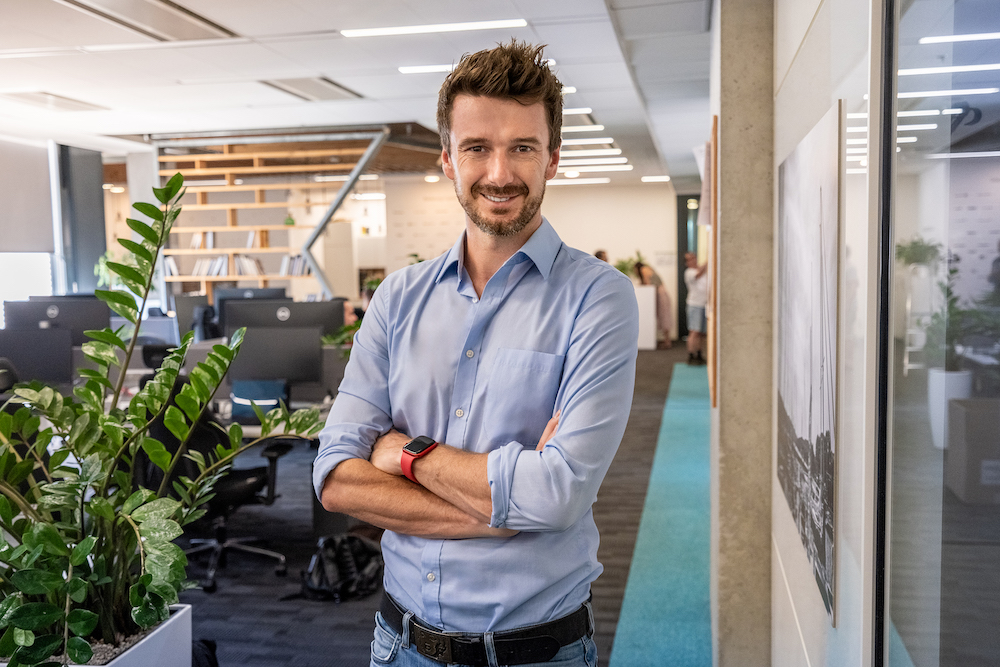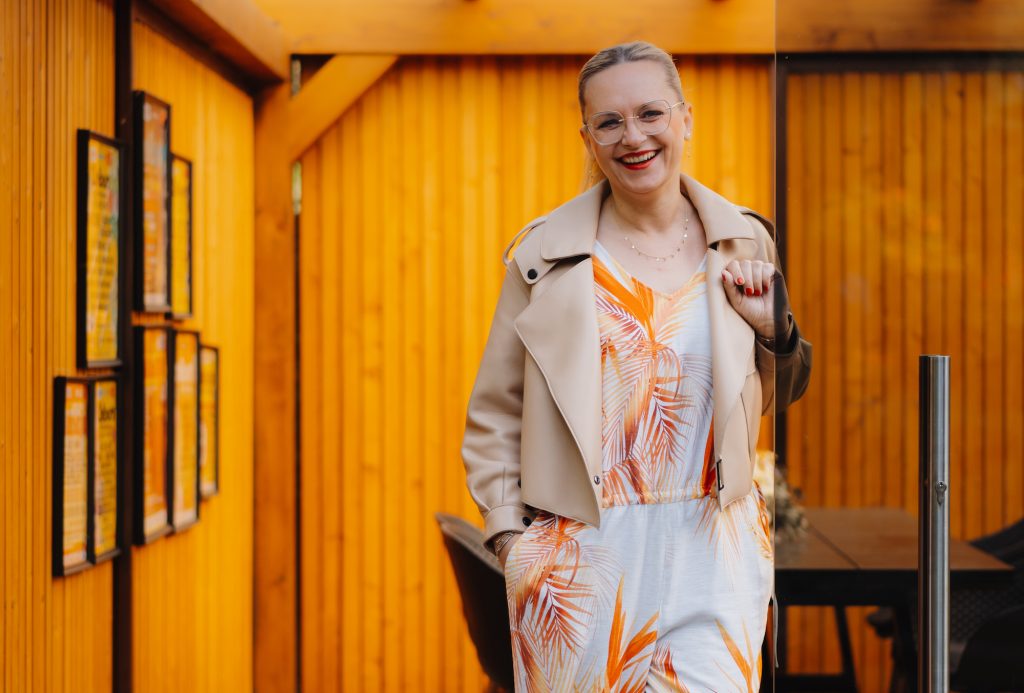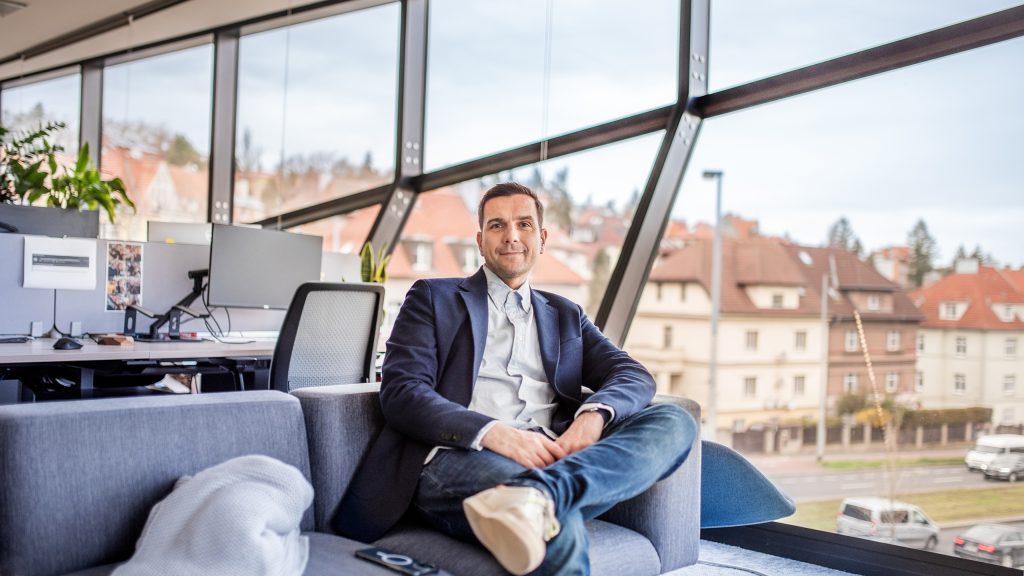All newsRockaway Insider with Andrea Lauren, a Rockaway Capital investment partner: The biggest problem women in general have is failure to claim the results of their work
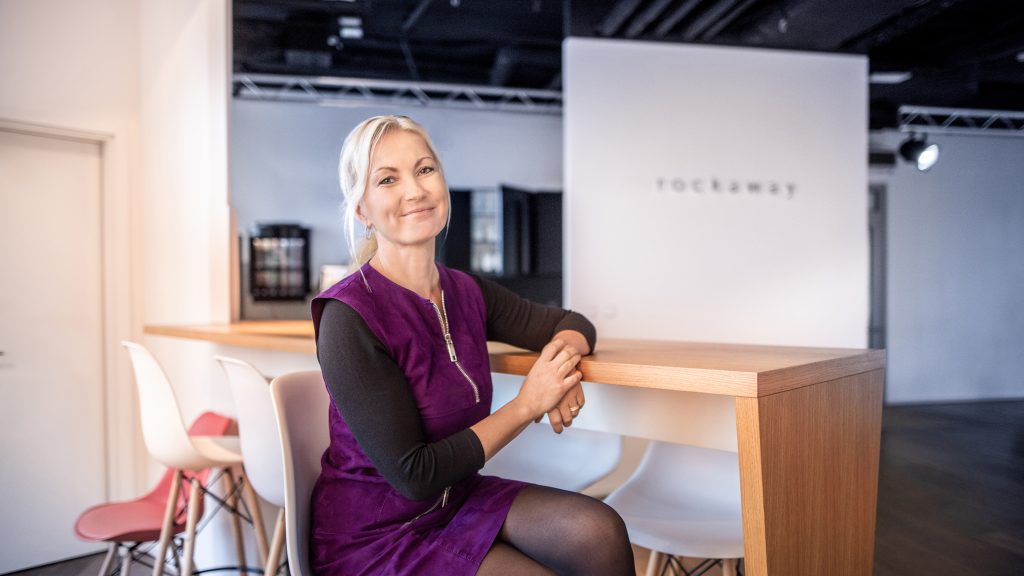
Although Andrea Lauren worked for many years as an investment banker in London, she is in her element in the world of startups and ventures companies. One of the most capable managers in this country (as confirmed by her inclusion on the list of TOP Women of the Czech Republic in 2017) is not only a full-time investment partner at Rockaway Capital, but also the mother of two small boys and the owner of two large dogs – she places equal priority on both her work and life, and could teach many people a thing or two about a perfect “work-life balance”.
What key thing has 2020 taught you?
That black swans really do exist. That a business that for years has exhibited growth and profits and has a functional managerial structure can stop dead due to external events – in our portfolio we’re mainly talking about travel and partly about services related to the hospitality industry. In business I’ve experienced two crises: in 2000, when the internet bubble burst, and the 2008 global financial crisis. In both cases, I was working in London. Especially the latter affected basically the entire economy, across the board. The year 2020 was a brutal game of musical chairs, with some losing their seats and some continuing in the game. That’s something I’d never seen before. And yes, it would seem that the e-commerce sector, like the Mall Group or Košík.cz could only benefit from this situation. But the moment supply chains from Asia stop working, China stops sending containers or re-prioritizes where they send their goods and they don’t arrive in Rotterdam, Europe will experience shortages, and then, of course, we also can’t sell as much as we’d like and as much as our customers want. The year 2020 turned everyone’s plans upside down in a major way.
What is the number-one rule that you follow at all costs in your business?
Even if you’re 100 % sure that you can do it all yourself, it’s not true. You need to have the support of a team. You need to bet on the right people, take the time to explain to them why certain things are being done, and give them feedback as well as listen to what they tell you. You can’t just sit in a glass office somewhere, draw graphs, create models in Excel, and be completely out of touch with reality. And the bigger the company, the greater tendency there is to do this. You need to remain in contact with those on the front lines, who have customer experience, see operating inefficiencies, and so on.
One learns from one’s mistakes. What mistake taught you the most, and what, specifically?
Not counting my first marriage… (laughter), then the biggest problem women in general have is failure to claim the results of their work or some decision. Whenever there’s a conference call with more than three male participants, each of them feels the need to confer some wisdom. When bonuses are being handed out, they immediately start hanging around managers and often end up taking credit for the accomplishments of others. Women don’t know how to do this. This is a mistake I’ve made many times in my life, and I guess I keep on making it. We’ll be sitting in a meeting, discussing what needs to be done, and a man will say: “We need to do so-and-so.” My reaction is, “OK, I’m going to go do it.” And the next time, the one who declared this aloud will say: “So, we did it.” I’ll be sitting there, knowing that yes, I did it. But he’s the one that speaks up and takes the credit.
What is your most important piece of advice for new entrepreneurs and start-uppers?
To try, to not give up, and to keep trying again and again. The world is rarely really the way we imagine it in some business model. A product or service may look impressive, but then, for example, we’ll find out that it doesn’t work in exactly this form and customers don’t want it. Or the market changes and better technology comes along… You always need to be able to pivot. Rarely is a product the best the first time around. You need to be flexible, be able to improvise, constantly learn from others, and when one idea doesn’t work out, try something different.
What do you consider the greatest benefit of your business for society?
I changed the business in which I work. For many years I worked as an investment banker and advised large corporations and state institutions, worked on privatizations, international acquisitions, and public emissions on capital markets. For the last seven years, I’ve been working in a completely different segment. I work with start-ups and venture projects that bring society true innovation. In most cases innovation doesn’t occur in corporations, but rather in these start-ups. The more projects you can support, the greater the added value for society.
In the case of a small country like the Czech Republic that has no mineral resources, its greatest wealth consists of human capital and innovation. I lived in Denmark for five years, and there I saw how it should work. Here we still have to strive to give more support to the business environment and innovation. Some of this can of course be done by private venture capital, our contacts, and our ideas that we can share with companies’ founders. So it’s not just about financing, i.e. money, but rather “smart” money. But education also plays a huge role in innovation, especially broadly available technical education and connecting academia with applied research, as does state funding for ventures. Alas, the Czech Republic doesn’t yet provide much funding for innovation. This sets us apart, not only from familiar success stories such as Israel, but in recent times also Poland, where the state is investing huge amounts in venture funds and start-ups. Due to the fact that in the Czech Republic the state as an investor into and supporter of innovation has relatively low visibility, the added value of our business, as a private investor in start-ups, is that much greater.
What question are you asked most often, and how do you answer?
How I manage to do everything (laughter). And that’s a very individual thing. You have to want to. I’m a mother of two boys (9 and 12) who have been doing distance learning for a bout a hundred years now, I have a full-time job, and I also want to have some time off. You simply have to be able to organize things and set priorities. Everyone’s work-life balance is different. It’s also a generational thing that’s being talked about a lot now, because young people who are graduating now with the same education and the same opportunities have a different approach than when I graduated. They’re saying: “I don’t want to work 16 hours a day, even if the work is interesting and pays well.” And that’s fine. You have to decide for yourself what’s important to you at a given point in life.
What life hack helps you most in your work?
Something that Covid arranged. Suddenly it’s socially acceptable to not work in an office every day from morning till night. People suddenly realized that it’s possible, and that in many cases working from home can also save a lot of time. And that it’s not only “part-time work for mothers with children who don’t take their career seriously”. People realized that you can find a different combination and work effectively partly from your home office and partly see people at the office. It can work better and save a lot of time. Which is ideal for me, and I won’t give it up now.
___
![]()
Did you like this interview?
The Rockaway Insider Newsletter is published every second Wednesday morning – subscribe now.
By clicking on “Subscribe” you agree to subscribe to the Rockaway Insider newsletter using the specified e-mail address. You can cancel your subscription at any time directly in the newsletter.
___

